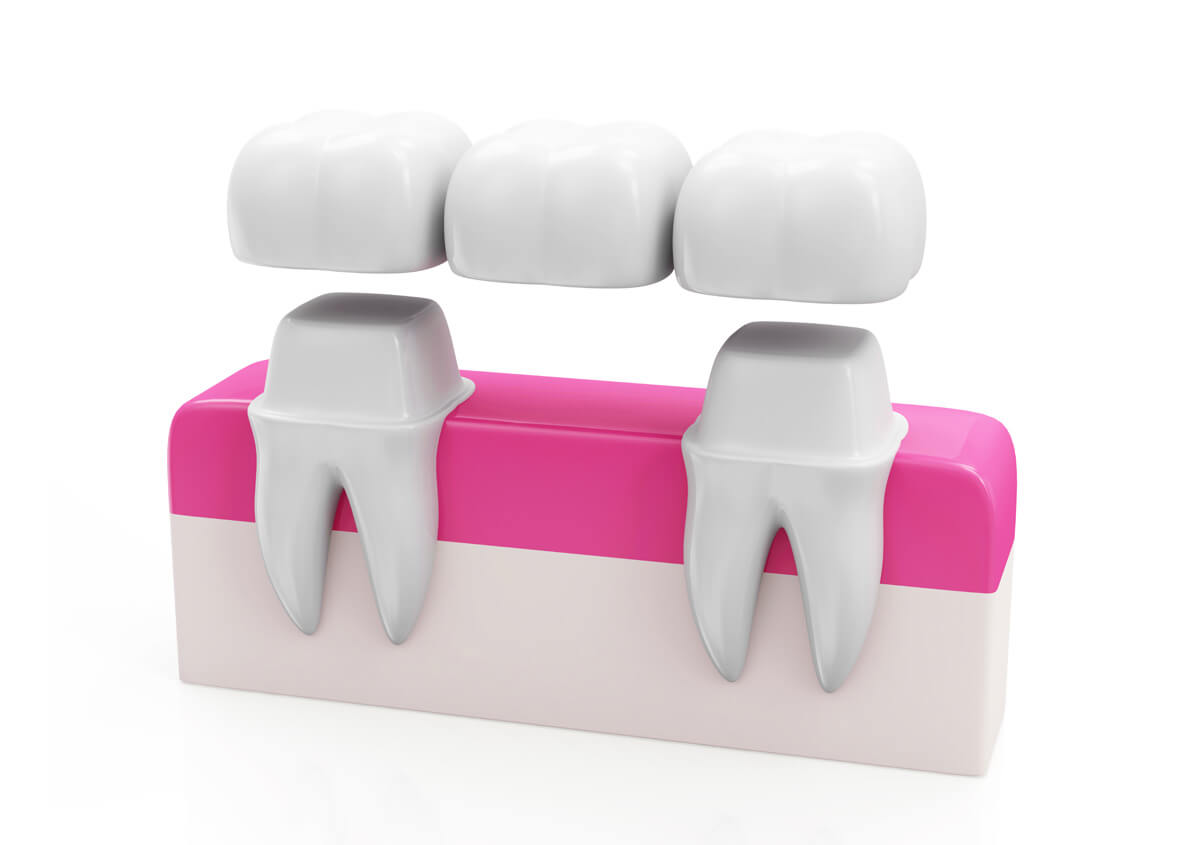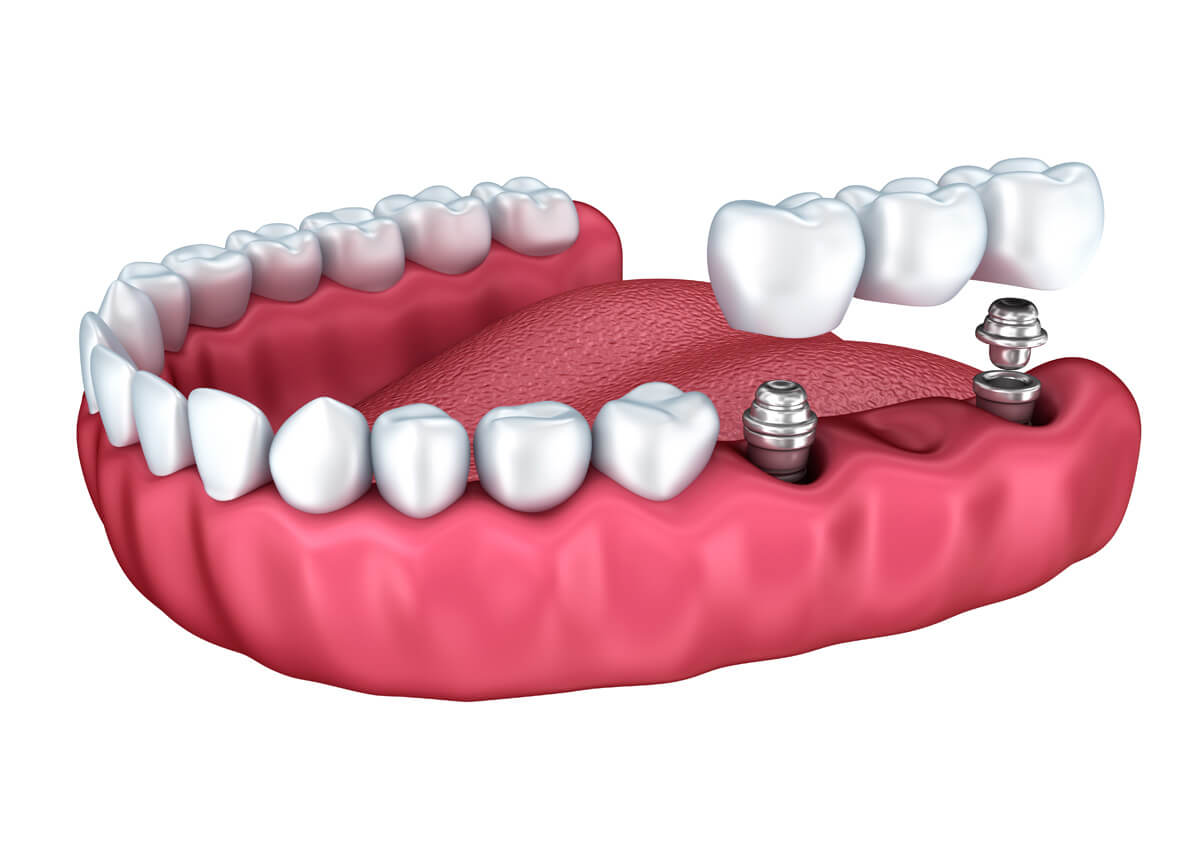Dental Bridges
What is a dental bridge?
 A dental bridge is a prosthetic device that is cemented onto at least two teeth. These two teeth help support the prosthetic tooth which is used to replace the missing tooth. When you have a missing tooth, we prepare the teeth which lie on either side of the missing space. A bridge is made to be cemented onto the two neighboring teeth and then a prosthetic tooth is placed in between. This prosthetic tooth is supported by its neighbors. This is the typical way of permanently replacing missing teeth.
A dental bridge is a prosthetic device that is cemented onto at least two teeth. These two teeth help support the prosthetic tooth which is used to replace the missing tooth. When you have a missing tooth, we prepare the teeth which lie on either side of the missing space. A bridge is made to be cemented onto the two neighboring teeth and then a prosthetic tooth is placed in between. This prosthetic tooth is supported by its neighbors. This is the typical way of permanently replacing missing teeth.
What are the pros and cons of a dental bridge?
One of the greatest benefits of a bridge is that it is efficient. It is also a quick way to replace a missing tooth. The main disadvantage is that it involves teeth on either side. If the teeth on either side are perfectly healthy, that can be a disadvantage. If they are teeth that need to be restored anyway, a bridge can be a great option. This is because it takes care of those teeth and restores the missing tooth – all at the same time. The pros and cons of a bridge also depend on the diagnosis and the patient’s situation. I usually discuss this with the patient before coming to a decision.
Is there more than one type of dental bridge? If so, what types are available?
Yes, there are two types of bridges; conventional and non-conventional bridges. Each has its own set of advantages and disadvantages. Non-conventional bridges require less loss of tooth structure. On the other hand, they are unsuitable for teeth at the back of the mouth. However, this again depends on the diagnosis. Also, there are different types of bridge materials from “all-ceramic” to “all-metal” to “metal-ceramic.” Yet again, what is best depends on the exact goals of the patient. Each type has pros and cons which have to be weighed out depending on the situation and the diagnosis.
Who would make a good candidate for a dental bridge?
Any patient who desires a permanent and non-removable prosthesis would make a great candidate as compared to those who want a removable prosthesis. Patients who have specific medical conditions or ones who are taking medications that are not “bridge friendly” might not be perfect candidates for a bridge. However, patients have to be aware that dental bridges adopt the traditional approach to restoring missing teeth.















